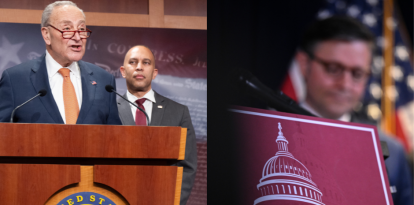Know Your App Act, the Republican proposal to force platforms to identify each app’s country of origin
Led by presidential primary candidate Tim Scott, this bill aims to protect Americans from having their data stolen by foreign agents.

(Unsplash)
The Senate Republican Party introduced a bill, known as the Know Your App Act, to force app download platforms such as the App Store or Google Play to display where each app was developed before it can be installed on electronic devices.
This proposal, spearheaded by Republican primary challenger Tim Scott and Senators James Lankford (Oklahoma) and Roger Wicker (Mississippi), aims to protect users' privacy from foreign intrusion.
Collecting data to outsmart the United States
"Americans should be able to make informed decisions about the online services they use in order to protect their data and security. Requiring app stores to display an app’s country of origin is a common-sense solution that can help them do just that," the current senator from South Carolina told Fox News. Wicker stated:
If passed, the bill would force platforms to incorporate filters allowing users to filter out apps from certain countries and warn users about the risks of downloading foreign apps. In the event that the owner of the app refuses to comply with this requirement, the platform will automatically withdraw the app from its store.
New breakthrough in the fight against TikTok and the communist regime in China
The Know Your App Act is one more step to preventing foreign influences from getting their hands on Americans' personal data, especially those coming from the communist regime of China. The most notorious case of privacy access was that of TikTok. In December, the Chinese social network's parent company, Bytedance, confirmed that several of its employees accessed the personal information of four American journalists.
In recent months, TikTok has become more and more closely guarded. Many states have already banned it from being downloaded and used on public devices, such as Alaska and South Dakota. One state took things even further. Montana Governor Greg Gianforte completely banned the Chinese app on any device, whether it be a state owned device or not. TikTok filed a lawsuit against the state and both parties are addressing the issue in court.
RECOMMENDATION





















